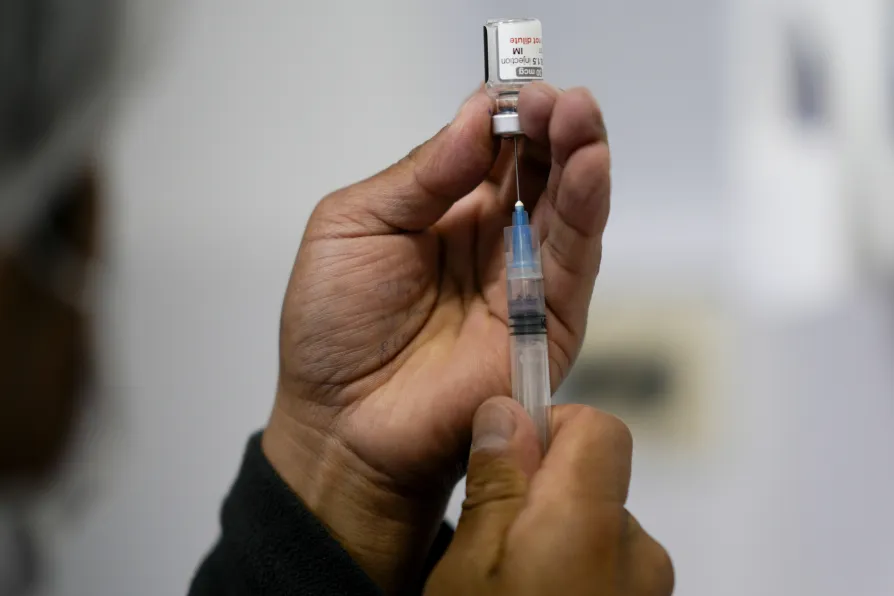
 A healthcare worker prepares a shot of the Pfizer COVID-19 vaccine in La Paz, Bolivia, January 7, 2025
A healthcare worker prepares a shot of the Pfizer COVID-19 vaccine in La Paz, Bolivia, January 7, 2025
MORE than 14 million children did not receive a single vaccine last year, according to United Nations health officials. Nine countries accounted for more than half of those unprotected children.
In their annual estimate of global vaccine coverage, released on Tuesday, the World Health Organisation (WHO) and Unicef said about 89 per cent of children under one year old got a first dose of the diphtheria, tetanus and whooping cough vaccine in 2024, the same as in 2023.
About 85 per cent completed the three-dose series, up from 84 per cent in 2023.
Officials acknowledged, however, that the collapse of international aid this year will make it more difficult to reduce the number of unprotected children.
In January, US President Trump withdrew the country from the WHO, froze nearly all humanitarian aid and later moved to close the USAid agency.
Last month, Health Secretary Robert F Kennedy Jr said the US was withdrawing the billions of dollars it had previously pledged to the vaccines alliance Gavi, saying the group had “ignored the science.”
Mr Kennedy, a longtime vaccine sceptic, has previously raised questions about the diphtheria, tetanus and whooping cough vaccine — which has proven to be safe and effective after years of study and real-world use.
Vaccines prevent 3.5 million to 5 million deaths a year, according to UN estimates.
“Drastic cuts in aid, coupled with misinformation about the safety of vaccines, threaten to unwind decades of progress,” said WHO director-general Tedros Adhanom Ghebreyesus.
Sudan, in the grip of a civil war, had the lowest reported coverage against diphtheria, tetanus and whooping cough.
The data showed that nine countries accounted for 52 per cent of all children who missed out on immunisations entirely: Nigeria, India, Sudan, Congo, Ethiopia, Indonesia, Yemen, Afghanistan and Angola.
The WHO noted that 60 countries reported big measles outbreaks last year.
The US is now having its worst measles outbreak in more than three decades.










